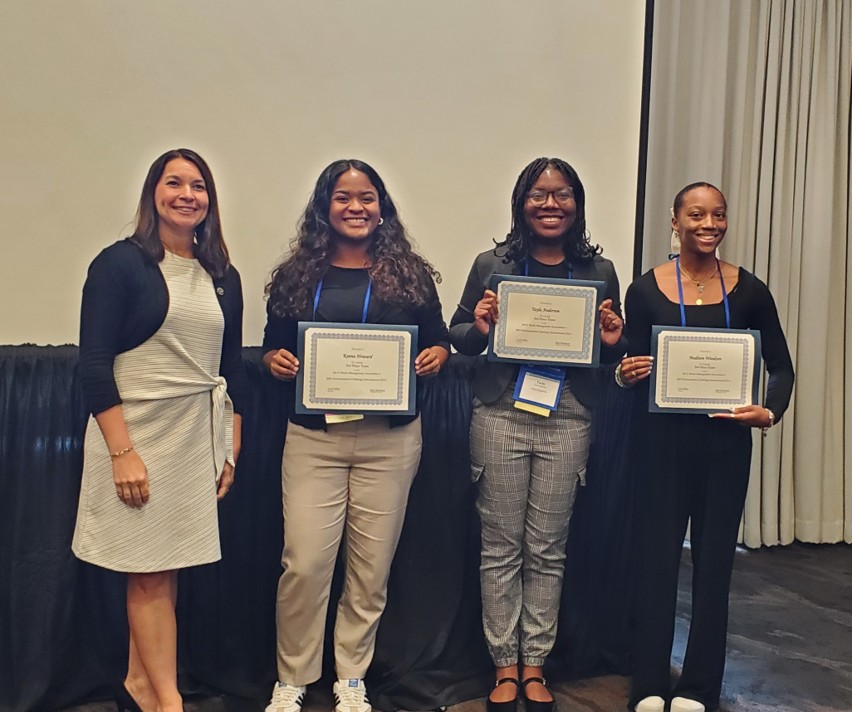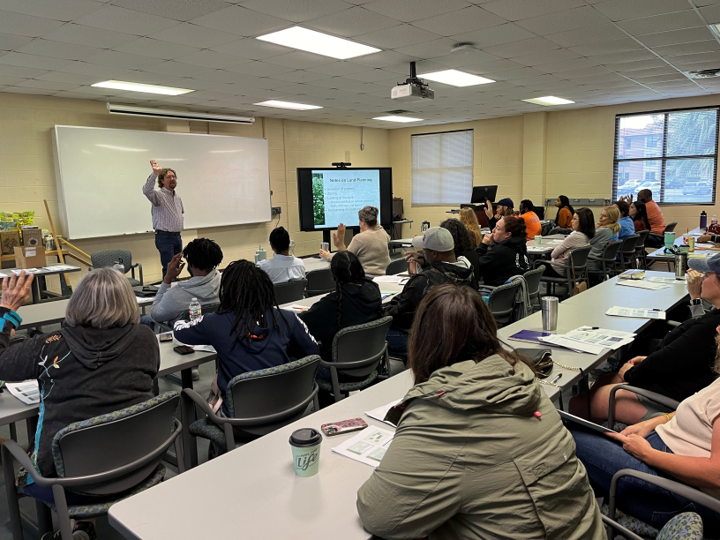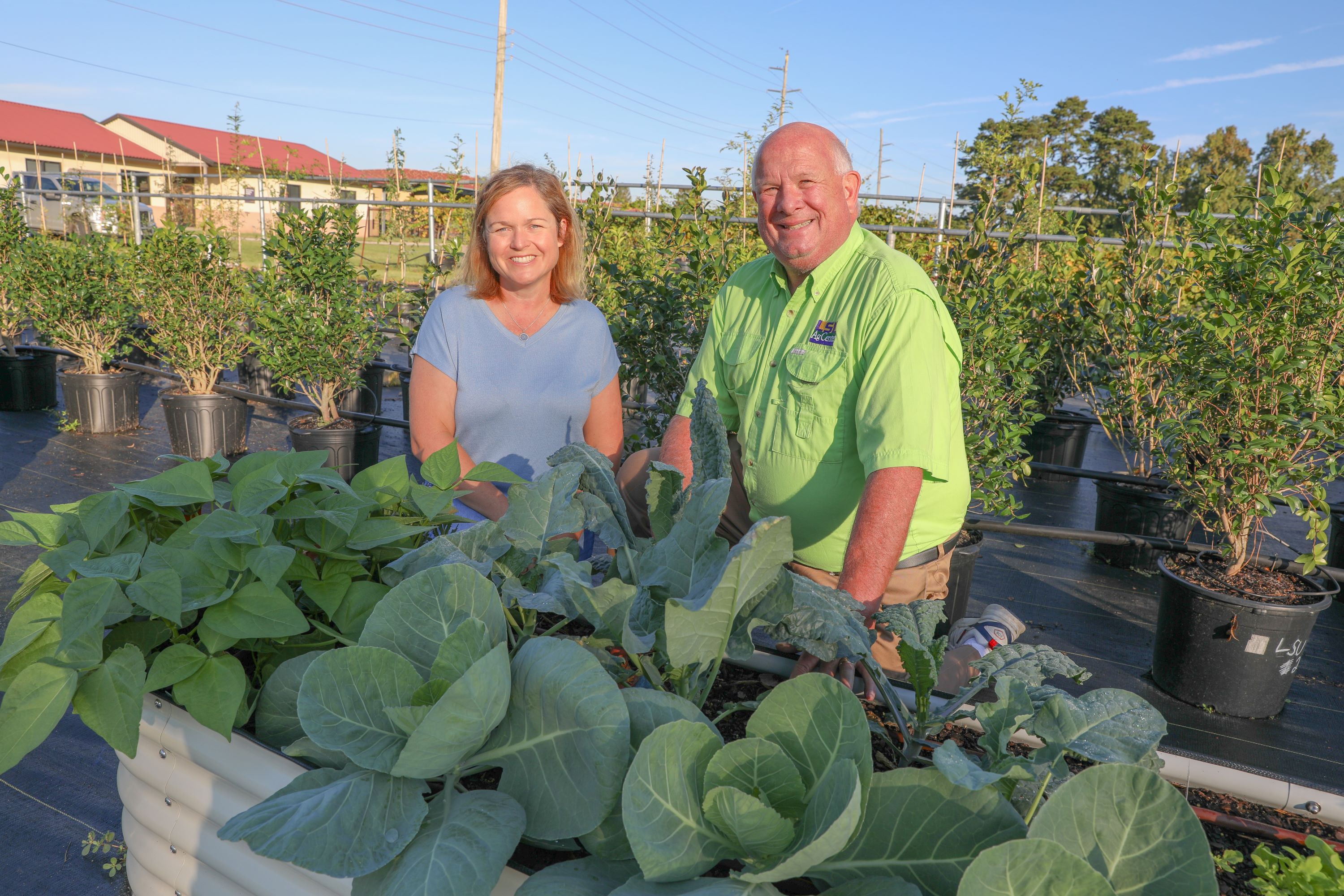Research and Outreach
Sample Research and Extension Programs
The School of Plant, Environmental, and Soil Sciences encompasses a wide range of research and outreach projects. The projects highlighted below are a brief glance at the exciting work LSU faculty are conducting.
SPESS Graduate STudents Receive Scholarships from the LNLA
 Yaohui Lui received the Margie Jenkins Scholarship from the Louisiana Nursery and
Landscape Association (LNLA). His master’s thesis, under the direction of Dr. Eric
DeBoer, focuses on developing recommendations for centipedegrass sod establishment
in the state, and this research can benefit landscapers, turfgrass managers, and homeowners.
Autumn Hilderbrand received LNLA’s Ira Nelson Scholarship at the recent conference.
She is currently a master’s student under the direction of Dr. Yan Chen at LSU, with
her research focusing on the fertility management of tea fields and the automation
of tea harvest.
Yaohui Lui received the Margie Jenkins Scholarship from the Louisiana Nursery and
Landscape Association (LNLA). His master’s thesis, under the direction of Dr. Eric
DeBoer, focuses on developing recommendations for centipedegrass sod establishment
in the state, and this research can benefit landscapers, turfgrass managers, and homeowners.
Autumn Hilderbrand received LNLA’s Ira Nelson Scholarship at the recent conference.
She is currently a master’s student under the direction of Dr. Yan Chen at LSU, with
her research focusing on the fertility management of tea fields and the automation
of tea harvest.
LSU AgCenter Extension Soil Fertility Specialist Featured at Maine Forage Conference

Dr. Leandro "Leo" Vieira, LSU AgCenter Extension Soil Fertility Specialist, was a featured speaker at the Maine Forage Conference in Waterville, ME. He delivered two presentations with the first being focused on Soil Health and the second in Soil Fertility. Dr. Vieira joined SPESS about a year ago and currently serves as the Extension Soil Fertility Specialist for specialty, field and forage crops. The conference was organized by Dr. Jaime Garzon with the University of Maine Cooperative Extension. Check out Dr. Vieira's Soil Fertility Extension Program at his website!
SugarCane and Soil Fertility Program SEasonal Projects
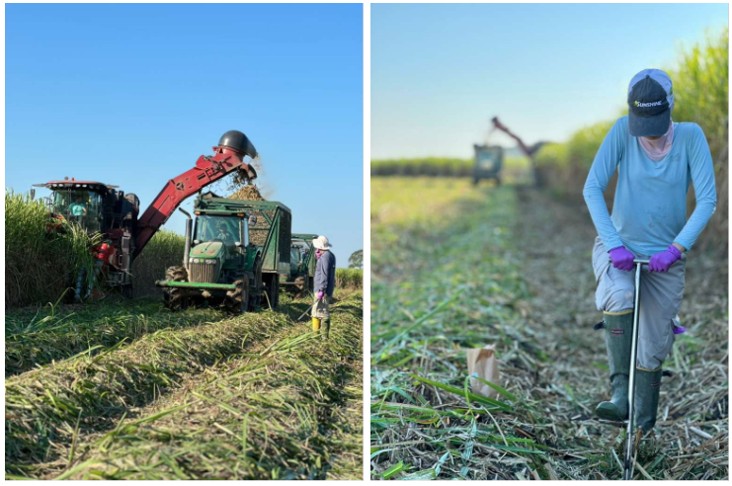
Harvesting sugarcane is one of the major field operations in the Soil Fertility program. Harvesting is in full swing as early as mid-September until the mills stop operations, typically around the end of the year. Cane tonnage and sugar yields data are collected along with soil samples for pH and nutrient content analysis, and shredded stalk samples for nutrient element profile, all these are used as performance metrics when evaluating fertilizer products, varying fertilizer application rates, and different management practices.
Agronomist 4064 plant breeding class
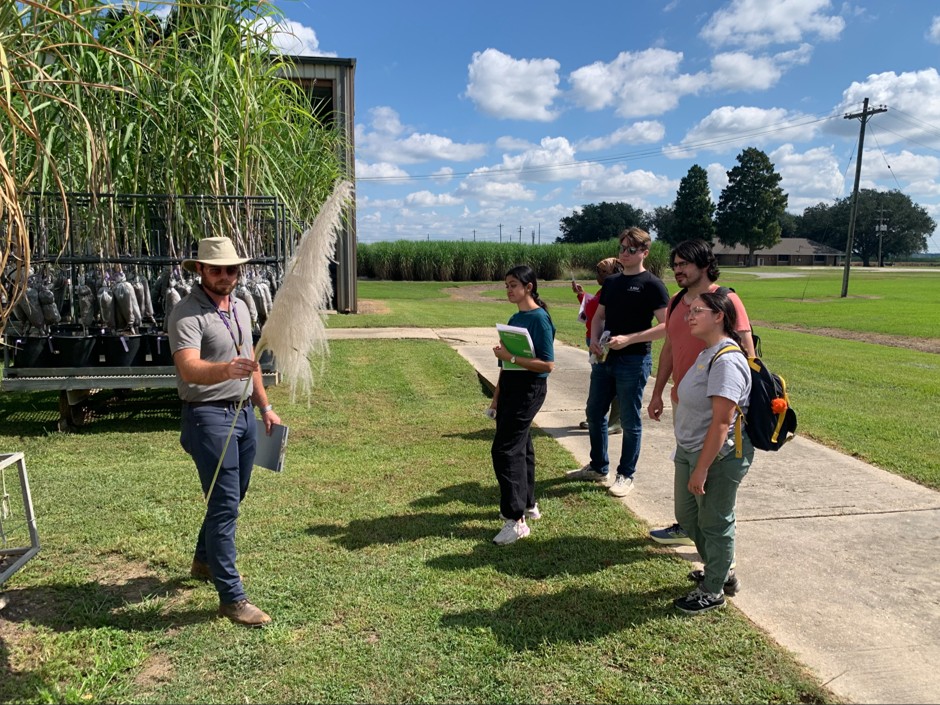
The AGRO 4064 Principles of Plant Breeding (AGRO 4064) class visited the LSU AgCenter sugarcane breeding program in St. Gabriel on September 26. Dr. Brayden Blanchard walked the class through the various stages of the sugarcane breeding program and discussed the methods and technologies used to ensure the program continues to develop improved varieties and support the Louisiana sugarcane industry. Sugarcane is a tropical crop and does not flower in the field in Louisiana. In order to induce flowering, carts containing crossing parents are rolled into photoperiod chambers each afternoon on a decreasing daylength schedule to induce flowering for crossing.
IDAHo Oat Nursery Harvest
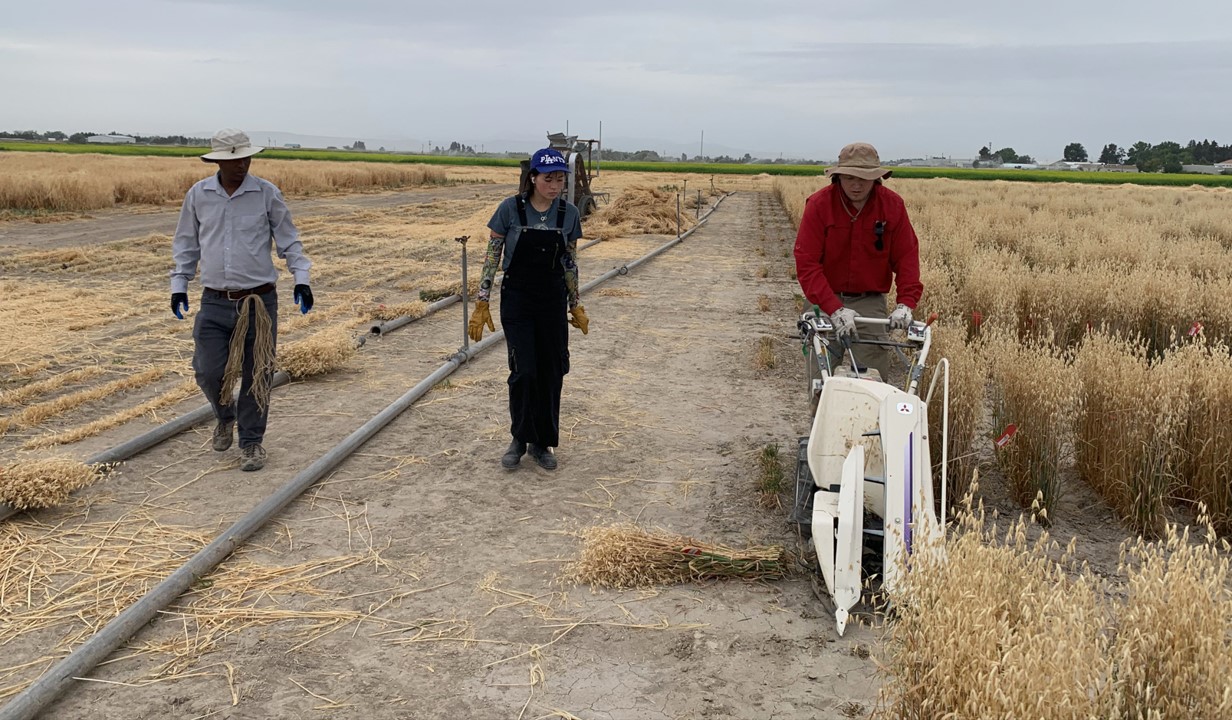
Approximately 2600 genetically distinct oat breeding lines (short rows with blue tags) are grown during the summer in Idaho. This material was harvested in Baton Rouge in May, seed processed and shipped to USDA collaborating scientists for planting. The USDA Aberdeen scientists and LSU oat breeding program have a long history of collaboration on oat breeding and disease resistance research projects. Olivia Letlow (center) is stacking bundles of oats as they are harvested for subsequent threshing.
SummEr Irrigation pond research concludes
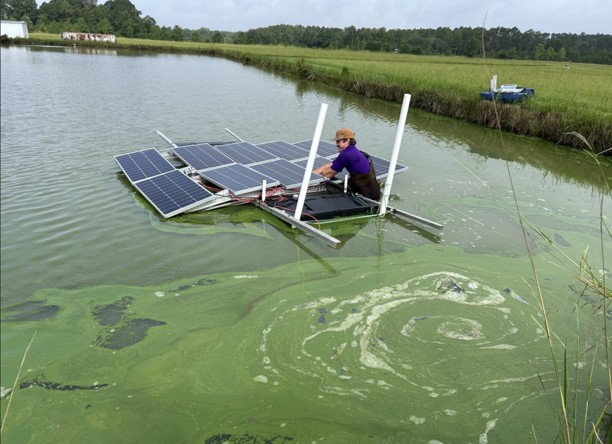
Water Quality Extension Lab graduate student Mason Marcantel retrieves pond sensors during summer final sampling trip. The project investigated the shading impact on water quality parameters, including nitrate, temperature, dissolved oxygen, and chlorophyll. Season trends in water quality parameters will be aligned for future stakeholder engagement and research publications.
LSU Oat Breeding line Collaboration
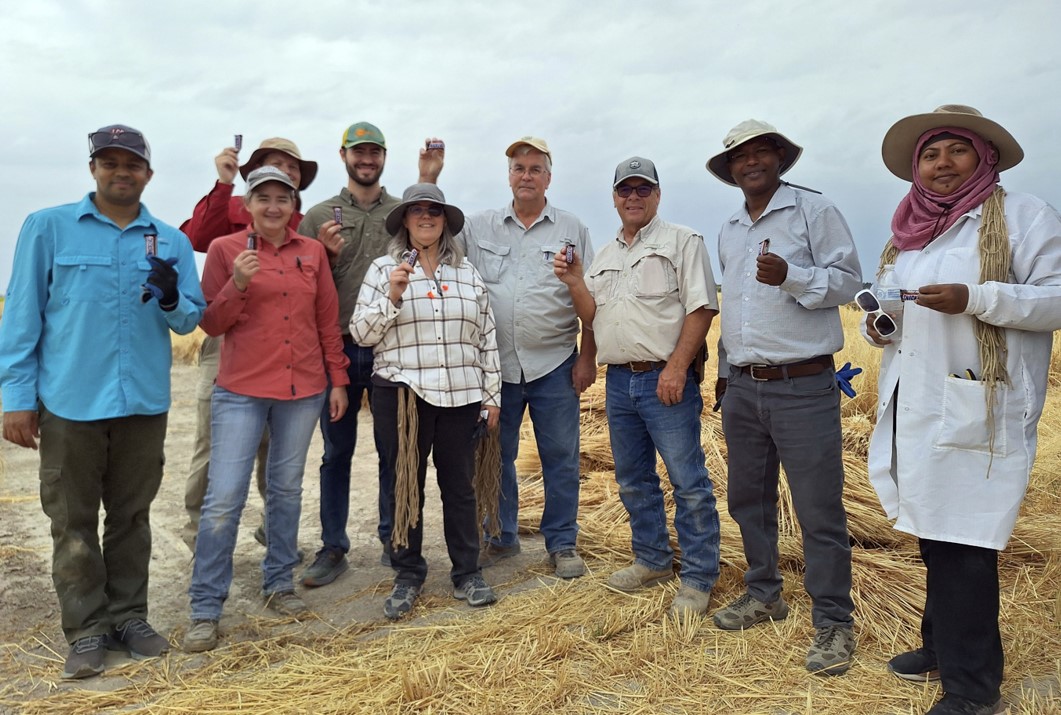
Pictured are research scientists and staff from the USDA facility in Aberdeen, Idaho and the breeding crew from the LSU AgCenter and Texas A&M during harvest and threshing of oat breeding lines. The snickers bars are in honor of Ron Barnett, retired University of Florida oat breeder who made many harvest trips to Idaho and required snickers bars and diet coke to get through the day.
Small GRains Team finished a successfull Harvest Season
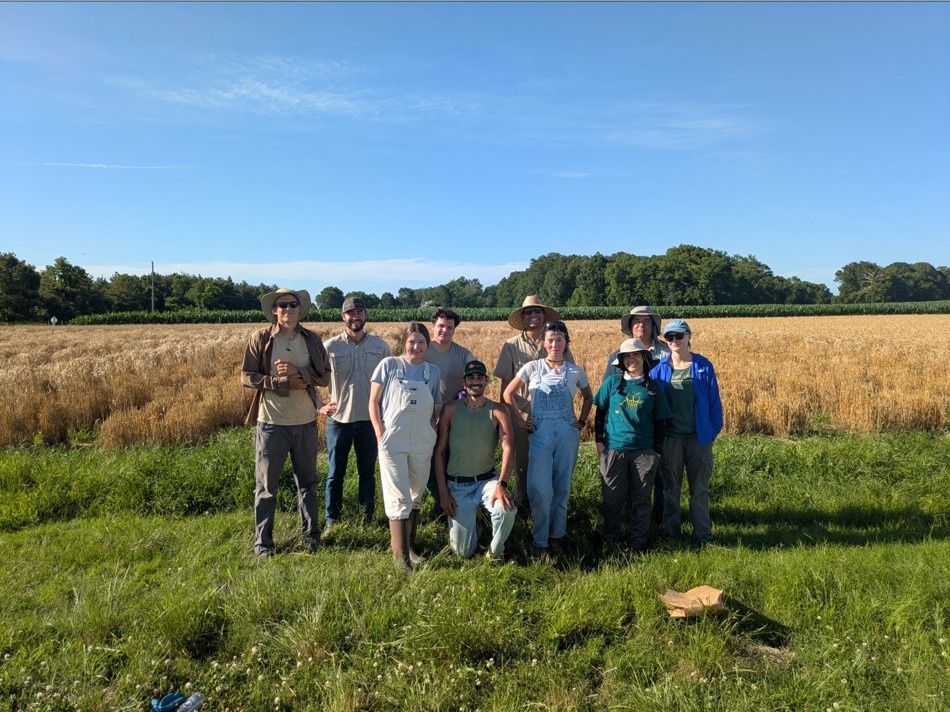
Faculty, staff, and graduate students of the LSU AgCenter Small Grains Breeding and Genetics program. The LSU AgCenter Small Grains crew finished with Winnsboro harvest this season!
Turf Grass and Water Quality Collaboration at TPC Louisiana
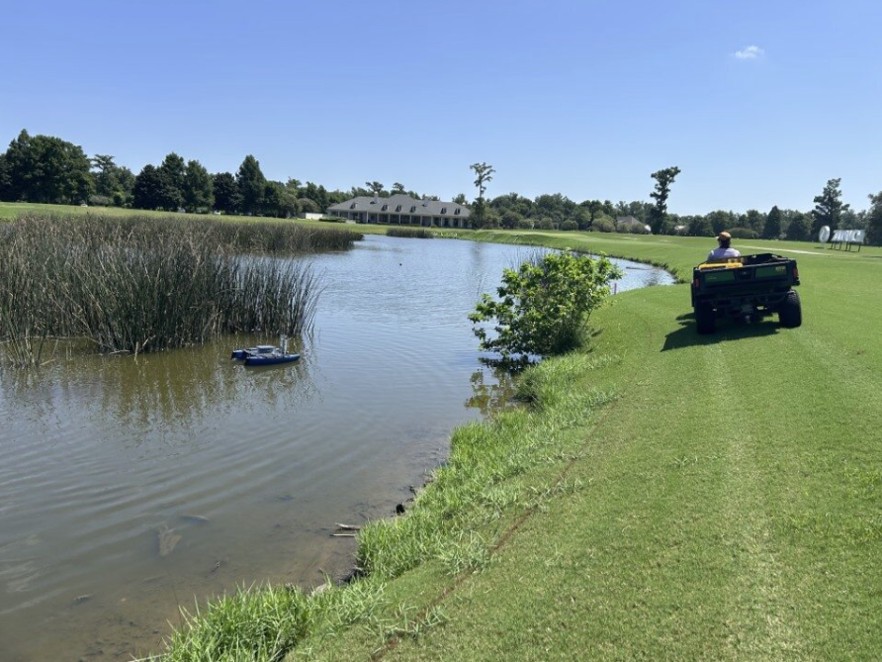
Faculty members Eric DeBoer and M.P. Hayes are working together on a project to emphasize best management practices (BMPs) for golf courses. The preliminary trip to TPC Louisiana was to work with the head superintendent to understand their sustainability plan for fertilizer and establish baseline water quality data for pond nutrients. The next trip is scheduled for mid-fall to collect more data points and validate the course's BMPs.
LSU AgCenter Macon Ridge Research station Wheat Plots
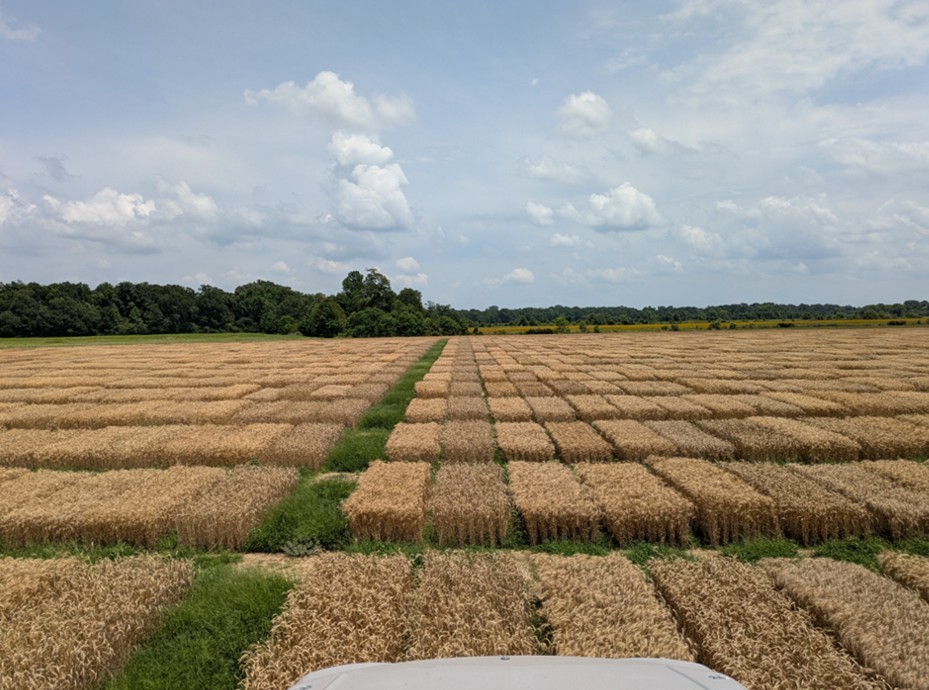
Wheat yield plots ready for harvest at the Macon Ridge research station in Winnsboro, LA
LSU Student Team AWarded Third Place at Annual Conference
The Geaux Green Consulting team from LSU, whose members were Environmental Management Systems majors Keana Howard and Madison Woodson, and Coastal Environmental Science major Tayla Anderson, was awarded third place in the Air & Waste Management Association Environmental Competition International (ECi) held at the Annual Conference June 9-12 in Raleigh, North Carolina. Photo shows A&WMA President Leah Blinn presenting the award to Keana, Tayla, and Madison.
Research and Extension for Crawfish Farmers to Map Water Quality
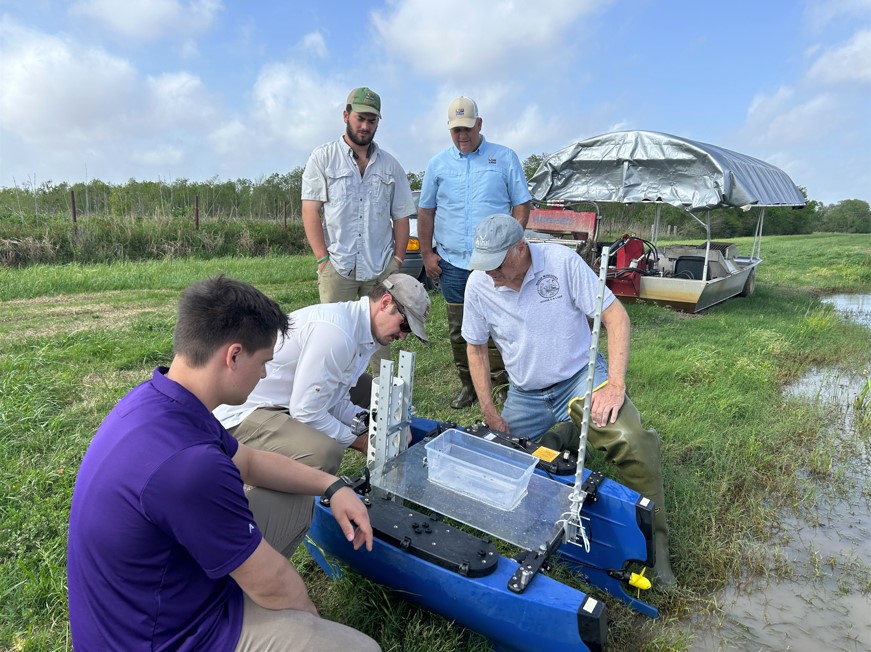
The Water Quality Extension Lab has been making waves with the team's Water Analysis Vessel (WAV) to map dissolved oxygen in crawfish ponds and understand the distribution of surface water aeration. This new technology provides innovative means for farmers to understand both water quality parameter dispersion and energy usage at their farms. The project provides surface water models for many different parameters including nitrate, ammonium, pH, temperature, turbidity, and dissolved oxygen. Additionally, the water drone is outfitted with a GoPro 13 camera to video sample trips and turn them into educational material for extension opportunities. This research has an amplifiable impact across agriculture for any stakeholder with ponds or lagoons that are interested in water quality assessments.
Tubana Leads Patrick F. Taylor Grant for Model Farms Best Management Practices
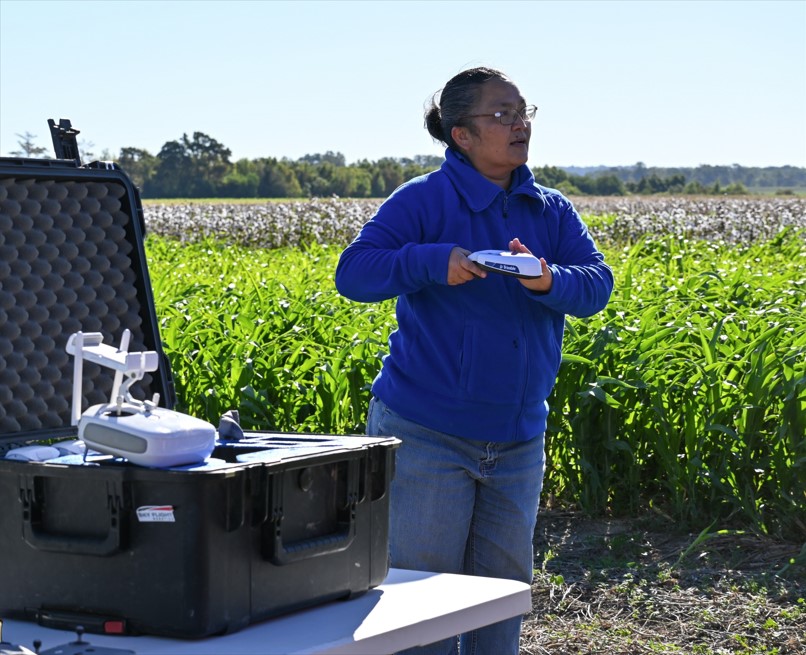
The Patrick F. Taylor Foundation Grant project showcases model farms within commercial agricultural operations, demonstrating science-based best management practices (BMPs) for grain crops and sugarcane. Our goal is to promote economically and environmentally efficient farming methods. In collaboration with the Patrick F. Taylor Foundation, our research supports outreach and education efforts, grounded in data-driven results.
Louisiana Sustainable Agriculture Research & Education Professional Development Program (SARE PDP)
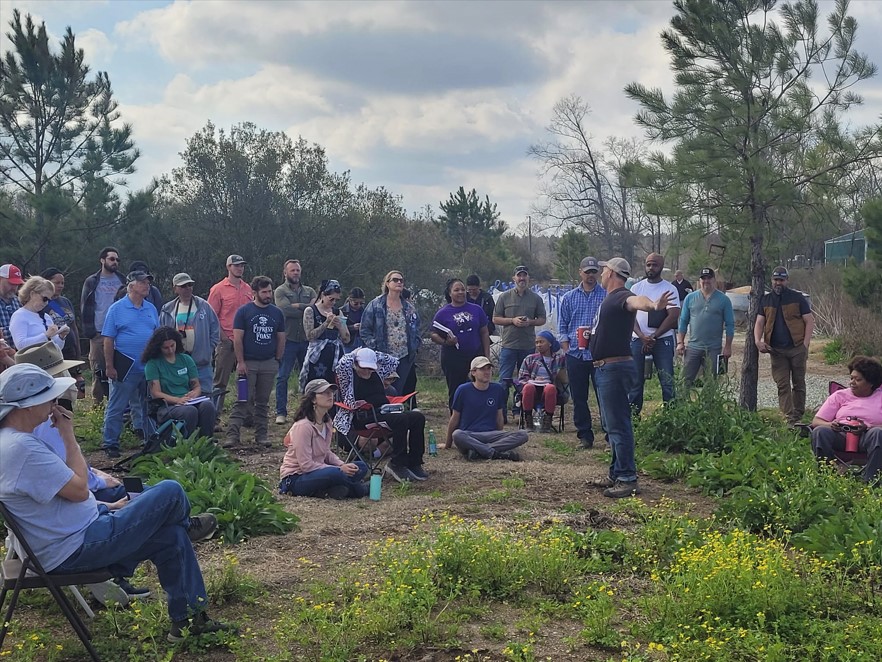
SARE’s Professional Development Program offers training, grants, and resources to enhance agricultural professionals' knowledge and skills in sustainability. The program includes two main components: regional competitive grants for creating training materials and outreach projects, and a network of part-time state coordinators who host workshops and field days and provide travel scholarships to share sustainable practices and research. For more information, follow the Louisiana SARE Facebook page. https://www.facebook.com/LouisianaSARE
In the year 2024, Louisiana SARE PDP was involved in a variety of activities ranging from a Cut Flower Workshop taught by retired horticulture agent, Denyse Cummins, to bringing a group of county agents and mentor farmers to the Carolina Stewardship Conference in Durham, NC. Additionally, LA SARE collaborated with Louisiana Grazing Lands Conservation Initiative (LGLCI) and Local Cooling Farms to put on a compost workshop, where attendees learned how to make compost, how to source composting materials and general business planning for compost production. Each attendee received a composting handbook and a 1cu ft bag of Local Cooling compost. Finally, LA SARE donated two limited liability signs to two farmers during the Agritourism Workshop organized by county agents Jessie Hoover and Mary Helen Feguson.
Seeds to Success: The Louisiana Farm to School Program
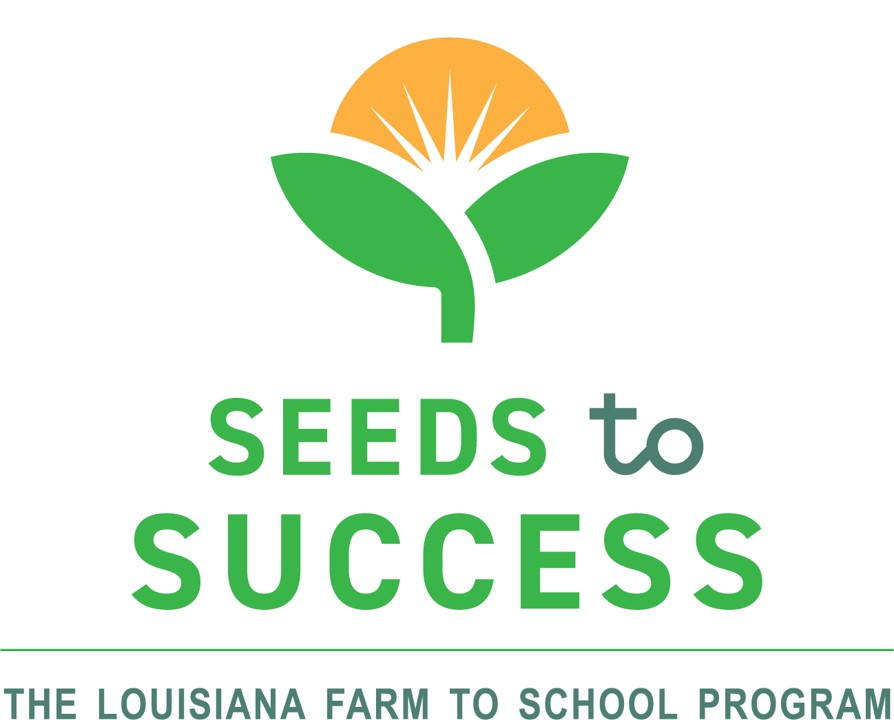
The LSU AgCenter’s farm-to-school program was established in 2016 with U.S. Department of Agriculture funding from the Louisiana Department of Education. Farm-to-school programs increase student access to healthy, locally grown products, link schools and farmers, and increase student awareness of the importance of agricultural activities through engaging learning opportunities. The nationwide movement termed “Farm to School” encompasses three pillars: education, procurement, and school gardens.
Seeds to Success strives to enrich the connection communities have with fresh, healthy food and local food producers by changing food purchasing and education practices at schools and preschools. Seeds to Success acts as an umbrella for all the programs Louisiana Farm to School has to offer and beyond. The program educates students about fruits, vegetables and other regional products, such as crawfish. It also helps link farmers with school districts in their areas so children can eat locally grown produce.
Grow Louisiana Beginning Farmer Training Program
Grow Louisiana is a year-long program that trains a cohort of farmers in horticulture and business skills, aiming to develop more farm-to-table operations here in our state. The 2024 cohort consisted of 15 participants from various regions of Louisiana. This year, in addition to the 12 in-person presentations, the program brought participants to tour two successful vegetable farmers in Louisiana, as well as hosted two farmer networking events. Of the presentations, the cohort of farmers heard from vegetable farmers, livestock producers, LSU and MSU AgCenter agents, and Daniel Parson of the Oxford College Farm at Emory University. For more information about the Grow Louisiana Program, email cmotsenbocker@agcenter.lsu.edu.
Hands-on training in beef cattle forage
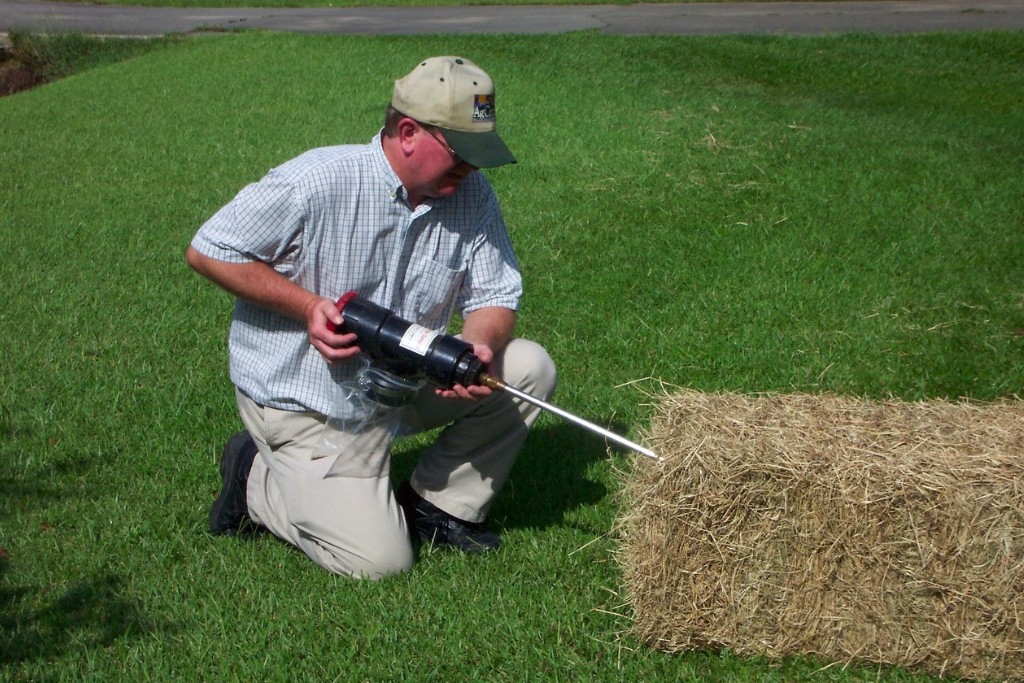
The LSU AgCenter offers many educational programs for beef cattle producers, including meetings, field days and podcasts. More recently, in-depth programs for beginning, semi-experienced and experienced cattle producers have been offered. These programs involve several days of instruction, and involve traditional classroom sessions and some field activities for producers to get some “hands-on” training. Each program has a forage component, and we discuss such topics as adapted forage species, forage fertilization, hay production, weed control and other topics.
Environmental Literacy
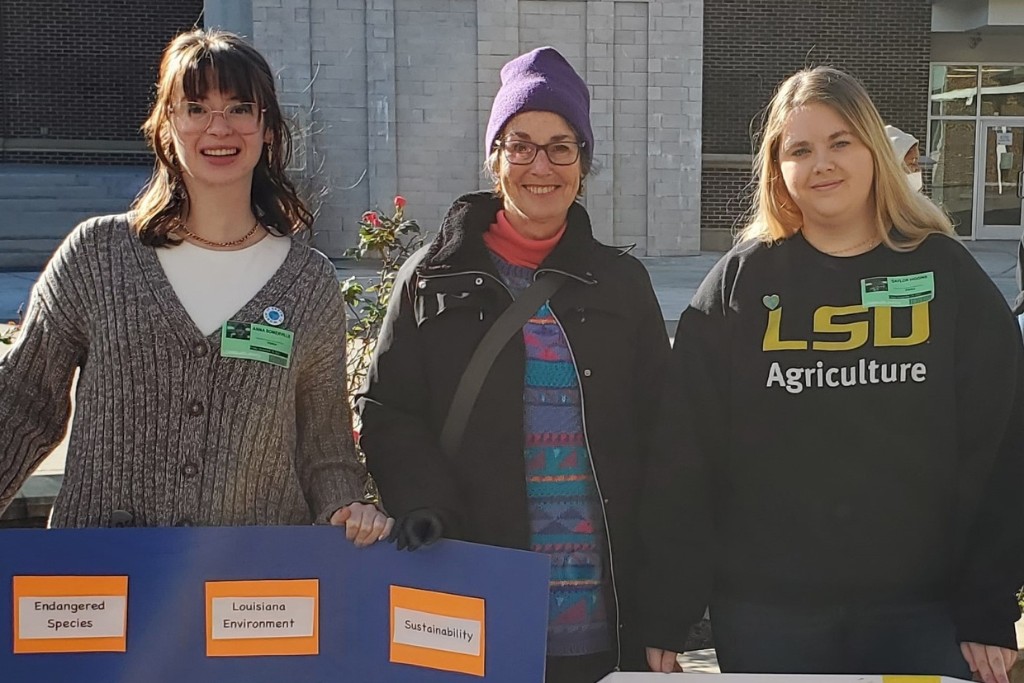
Dr. Maud Walsh is committed to improving environmental literacy through K-12 educational outreach. She has led hands-on environmental activities at schools, community events and summer programs in partnership with Louisiana 4-H, the Louisiana Department of Environmental Quality, the Big Buddy program, and other organizations. Many outreach activities, such as at Baton Rouge Magnet High School STEM Day and shown in the photo, involve students in Dr. Walsh’s Environmental Management Systems service-learning classes at LSU. Dr. Walsh has conducted numerous workshops for K-12 science teachers, including most recently one designed to encourage middle- and high-school teachers to integrate agriculture-related concepts into basic science classes.
Evaluation of USDA industrial hemp germplasm in Louisiana
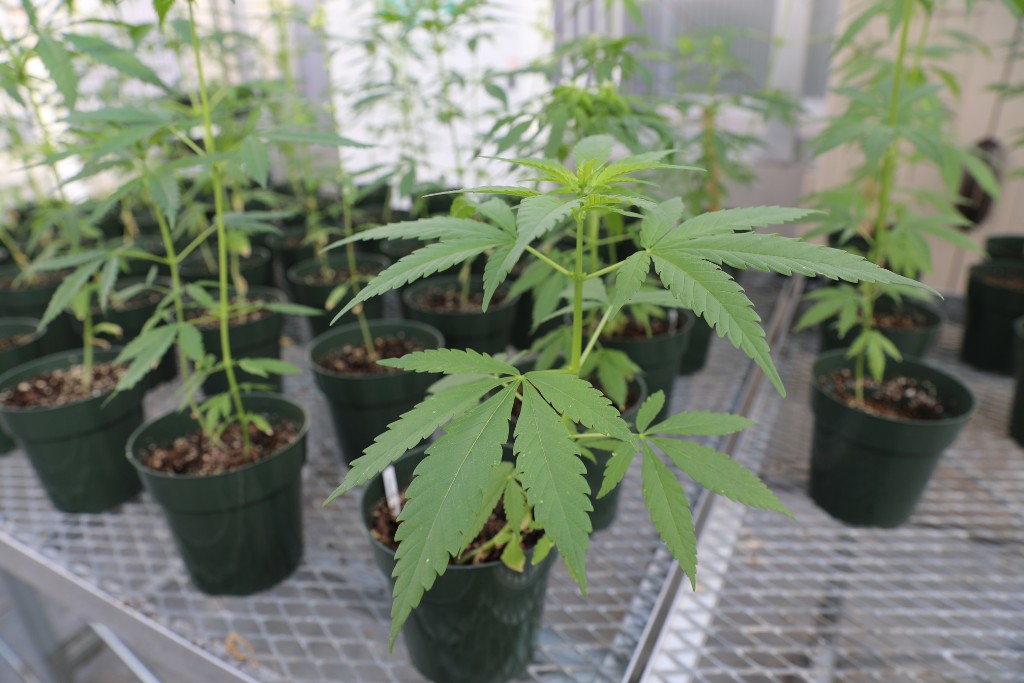
In collaboration with USDA ARS Geneva, we are evaluating 35 open-sourced hemp cultivars in Louisiana for their adaptability. These cultivars are evaluated in randomized block design in three replications. Based on the data collected, we can select the cultivars performing better in our conditions and use them to start our hemp fiber and grain breeding program. The cultivars will be used as parents to make controlled crosses with complaint cultivars and the populations will be evaluated in multiple locations within the state for their yields and resistance to stresses and diseases. The data collected will also be deposited in the national hemp database GRIN global for other researchers and producers to use when selecting varieties for cultivation.
Plant Stress Molecular Biology
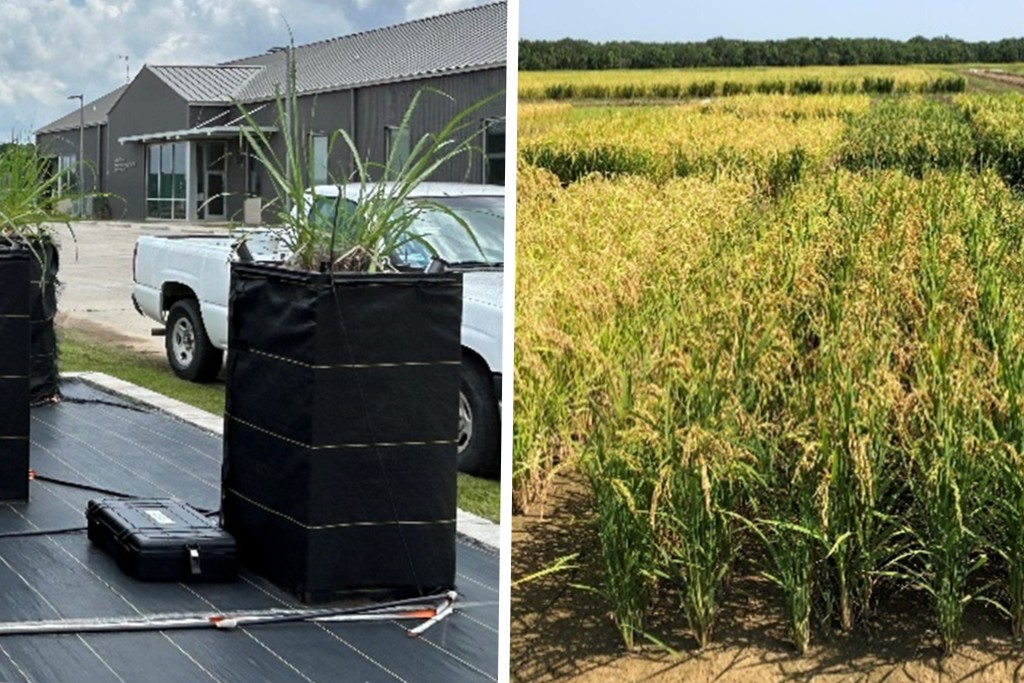 Our sugarcane molecular genetics research program makes use of the trait-genes and
markers at the genome scale to develop genomic strategies to complement conventional
breeding efforts toward development of sugarcane varieties with high sucrose content,
disease resistance, cold tolerance, and better ratooning ability. In addition, our
research delves into identifying regulatory genes and associated networks underlying
traits such as water use efficiency in rice, aflatoxin resistant corn etc. to enhance
our understanding of the plant’s responses to the stressors at tissue, organ, cellular
and molecular levels that can be translated to develop varieties with resilience in
the face of the changing climate.
Our sugarcane molecular genetics research program makes use of the trait-genes and
markers at the genome scale to develop genomic strategies to complement conventional
breeding efforts toward development of sugarcane varieties with high sucrose content,
disease resistance, cold tolerance, and better ratooning ability. In addition, our
research delves into identifying regulatory genes and associated networks underlying
traits such as water use efficiency in rice, aflatoxin resistant corn etc. to enhance
our understanding of the plant’s responses to the stressors at tissue, organ, cellular
and molecular levels that can be translated to develop varieties with resilience in
the face of the changing climate.
Salt Tolerance Evaluation at the Seedling stage in Rice
The increased frequency and intensity of climate related risks such as biotic and abiotic stresses is negatively impacting productivity of many crops including rice. Since rice will continue to be a major food crop in the foreseeable future, development of high-yielding climate smart rice varieties is critical to fulfil the global food requirement in the future.
In a project funded by the National Institute of Food and Agriculture of USDA, our overall goal is to develop climate resilient rice varieties for improving sustainability of rice farming.
For more information about our research activities, visit the Crop Plants Genetics Laboratory Website.
